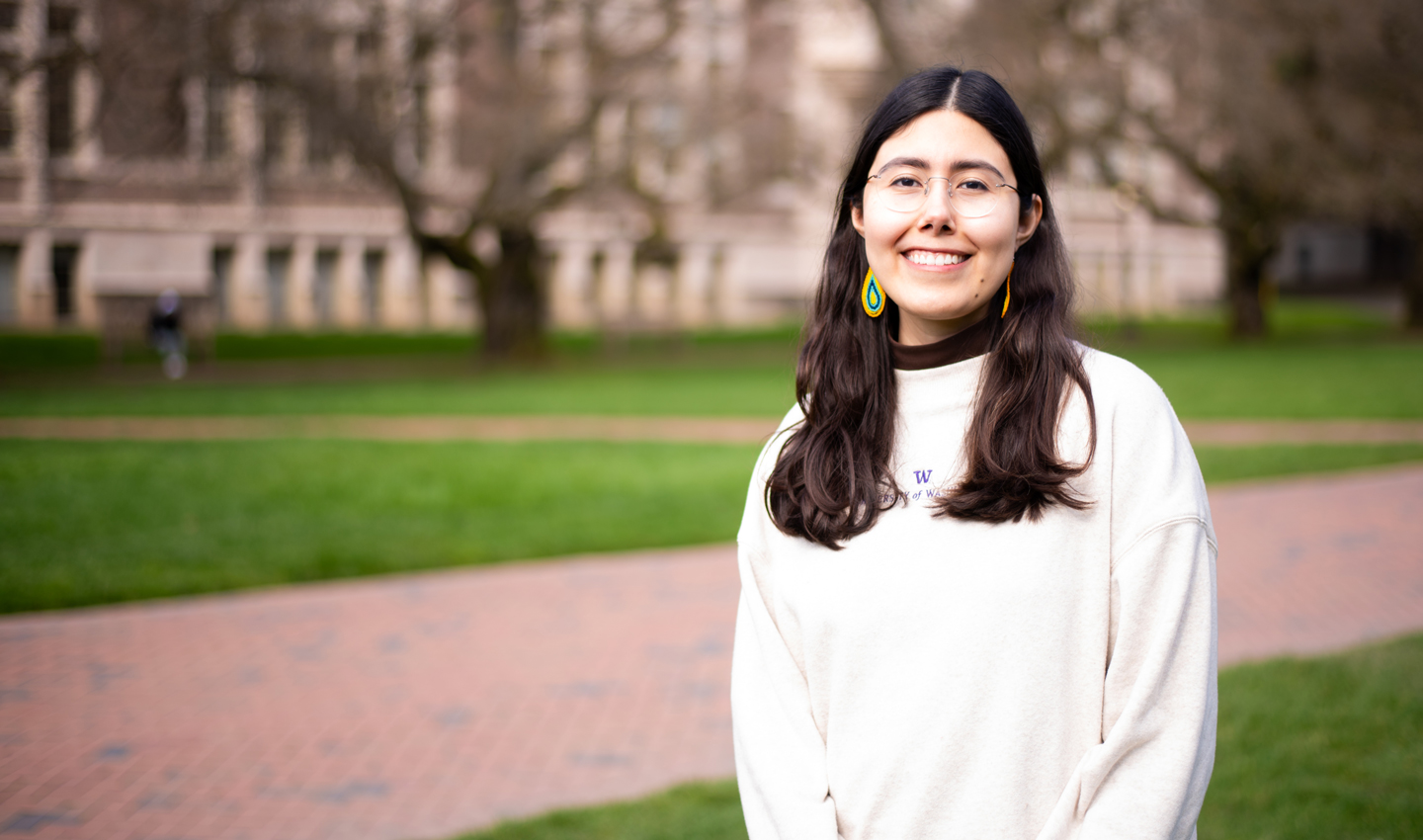As an undergraduate at the University of Texas at Austin, María Fernanda (Fer) Palomares Carranco found it challenging to do the type of research that would support her graduate school goals. The libraries and catalogs were difficult to navigate, and she didn’t know how to get more help.
After she earned her bachelor's degree, she was looking for a graduate program, but again, finding the necessary information was overwhelming. When she began working in graduate admissions, she suddenly had an insider’s view to the admissions process and she realized there was much she hadn’t known.
Those experiences led her to the University of Washington iSchool and the Master of Library and Information Science program. Palomares Carranco wants to use her iSchool education to make it easier for students, specifically those who are Black, Indigenous and people of color, to access information, including the information they need to get into graduate school.
She appreciated that the iSchool would allow her to take technology-heavy courses as well as classes that focus on social justice. She also liked that the school has a diverse faculty and professors with a wide range of experience and expertise.
Soon after she was admitted to the iSchool, Palomares Carranco learned she’d earned a MLIS Dean’s Fellowship, a renewable scholarship that is awarded to a small number of top students. That scholarship made it possible for her to move to Washington to attend.
“I was very excited,” she said. “I had never lived outside of Texas and it gave me a chance to live in a different state and get a new perspective on what the world of library and information science was like.”
Now in her second quarter, Palomares Carranco is interested in critical cataloging, which works to analyze methods of cataloging and language to address harmful instances of bias. The Information and Social Justice course she’s taking with Temi Odumosu, an iSchool assistant professor, has helped her understand those issues.
Palomares Carranco is thinking a lot about the power of language, particularly how it is used in cataloging and archives, which have a history of privileging white perspectives.
“I want to get into the nitty gritty of what language we are using in catalogs and how we can re-envision catalogs that address the historical power imbalance that have been embedded into these systems,” she said.
Odumosu said Palomares Carranco is in a good position to look at librarianship, from the big picture to the details.
“Fer has had a very global education,” Odumosu said. “She’s worked in cultural studies, she’s interested in technology. But she’s also done a lot of reading, from feminist texts to anthropology.”
Palomares Carranco brings a unique perspective to the iSchool, Odumosu said, thanks to that broad set of interests and knowledge. Odumosu encourages students to stay open and draw references from a wide range of information, including art and film. Odumosu said Palomares Carranco’s ability to think about the big picture and follow her curiosity are powerful assets for the iSchool and the field of librarianship.
Palomares Carranco is tailoring her upcoming courses so she can gain skills as a librarian and a researcher that will help her make graduate school and libraries more accessible. Part of that includes more work in critical cataloging, as well as a chance to study in Portugal. She appreciates that the flexibility of the iSchool program is allowing her to design a course of study that will allow her to support BIPOC students.
“The way the courses have been structured has been really helpful,” she said. “It gives me the space to find ways to help my community. I’m really excited about the options that I have.”
